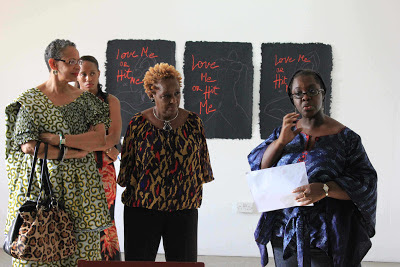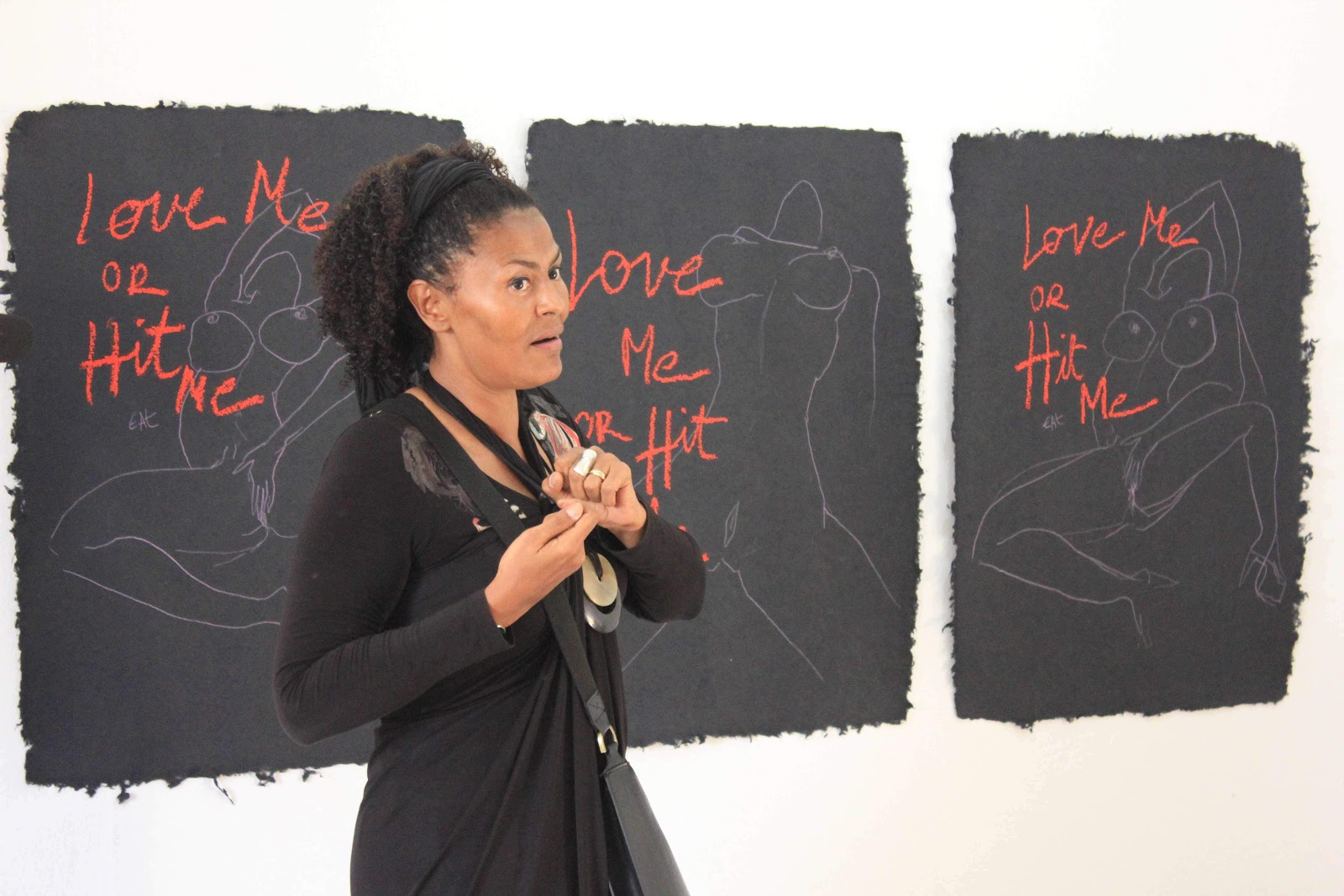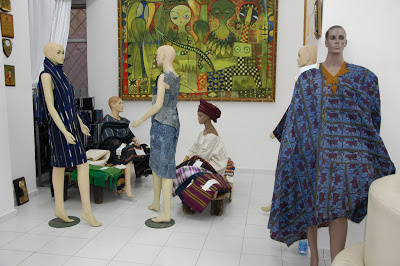The Ivorian- born artist has, by the collection of works on display, set a new discourse about the power of expression through art forms without limitations.
The collection establishes a shift from the regulars of political developments, environmental issues, and civil unrest to love in different forms.
From Oka’s collection I find interesting the works titled ‘Love market’ and ‘I promise to love you’. The art appreciator is left to wonder what goes on in the ‘Love market’ with a woman trapped inside a cage alone with a penis. Is love all
about sex for sale? In ‘I promise to love you’ the scene bears so many leads for interpretations.
Scattered about the room where the woman is sleeping, tucked under her duvet, are empty bottles of alcoholic drinks; cigarette butts; her dress and shoes, underwear and condoms.
I wouldn’t know if this suites her expression of love but, if you ask me I am sure this will raise so much to talk about in this environment.
The growing visibility of the role of performance in contemporary art is in itself akin to a political act.
With a younger generation of local artists breaking free from the historical dependence on painting and sculpture, live art provides new possibilities and flexibility for transgressing media boundaries and opening up a space for articulating complex ideas about their experiences and daily realities—a space where art converges with life and impacting the way we critically engage and actively explore love today.
The performance work of Jelili Atiku (Nigeria) and Wura-Natasha Ogunji (USA) explores the subject of love within the contexts of familial bonds and personal memory, while performance installation works by Temitayo Ogunbiyi (Nigeria) and Valérie Oka (Ivory Coast) coerce viewers into interactive projects that take the technical and ephemeral dimensions of romantic emotions as subjects of inquiry.
The moving image forms an integral aspect of the exhibition through the works of Zanele Muholi (South Africa)
and Andrew Esiebo (Nigeria), with their insightful and topical documentary projects as well as Adaora Nwandu’s (Nigeria) short films which foreground lived experiences and fictional stories from the perspective of same-gender love confronting a continent that considers such affections taboo.
Inspired by personal experiences, family ties, tradition, technology, and local literature, these works express joy, loss, absence, pain and difference; they invoke memory, challenge prejudice and articulate togetherness in lyrical and at times, satirical ways.


































































